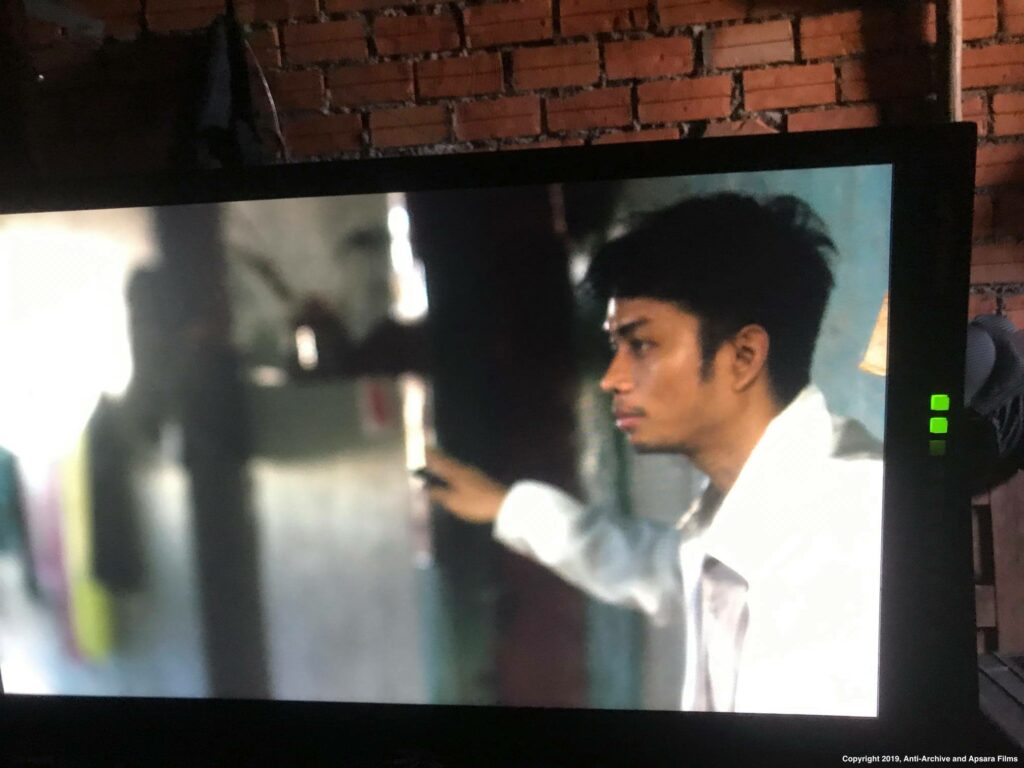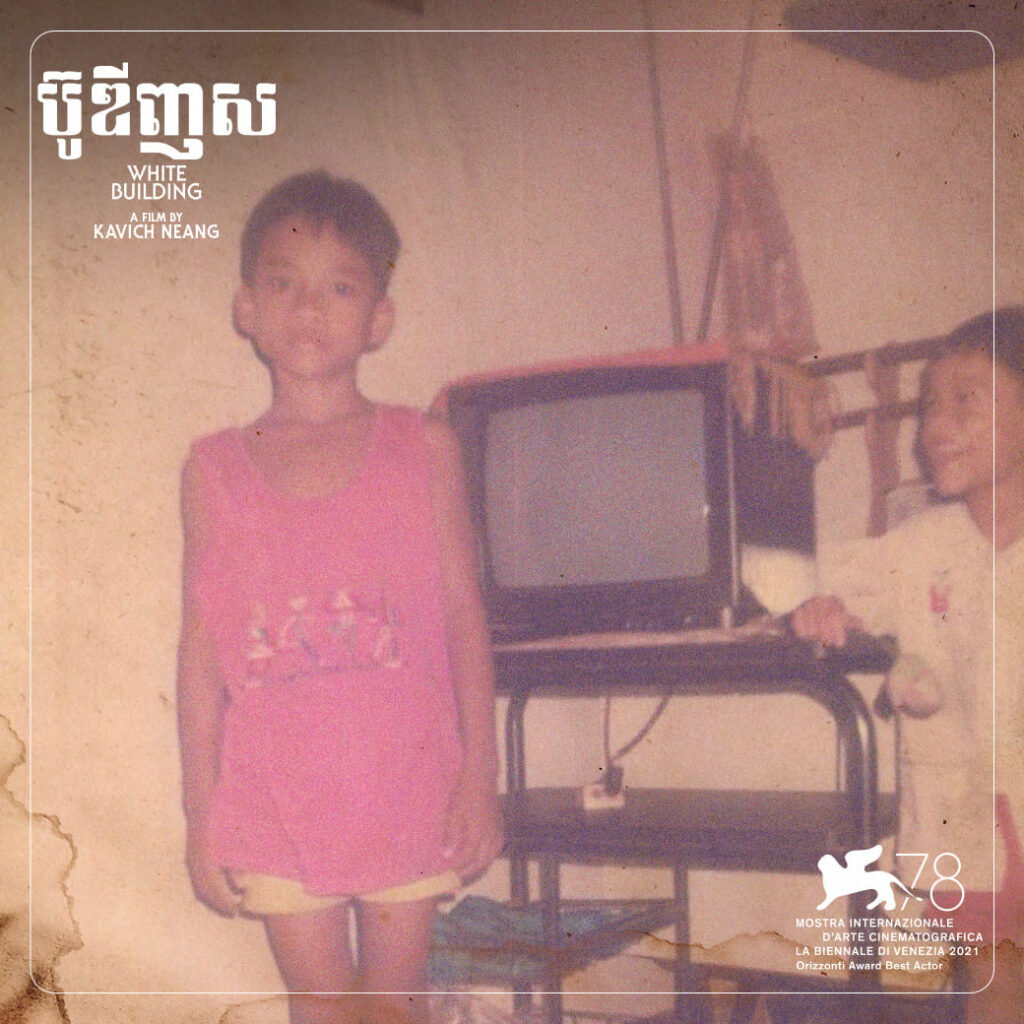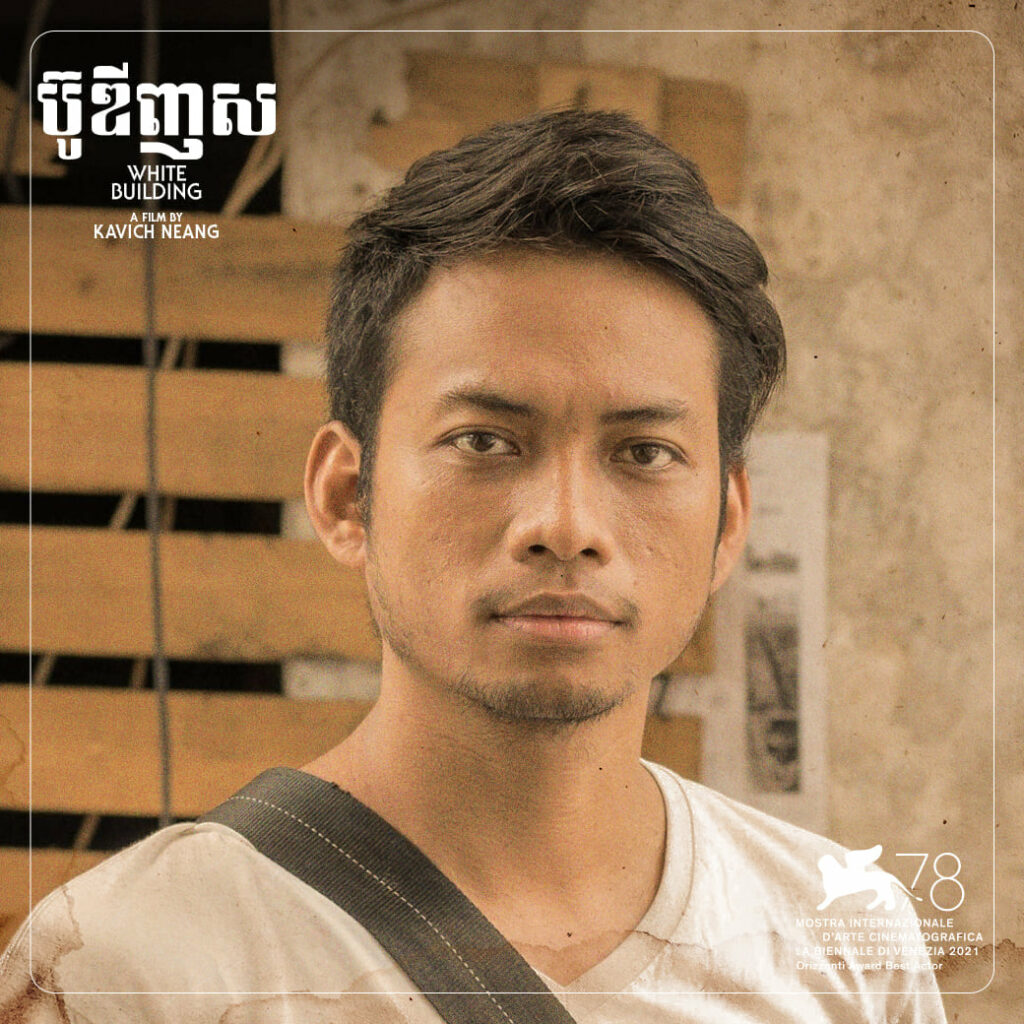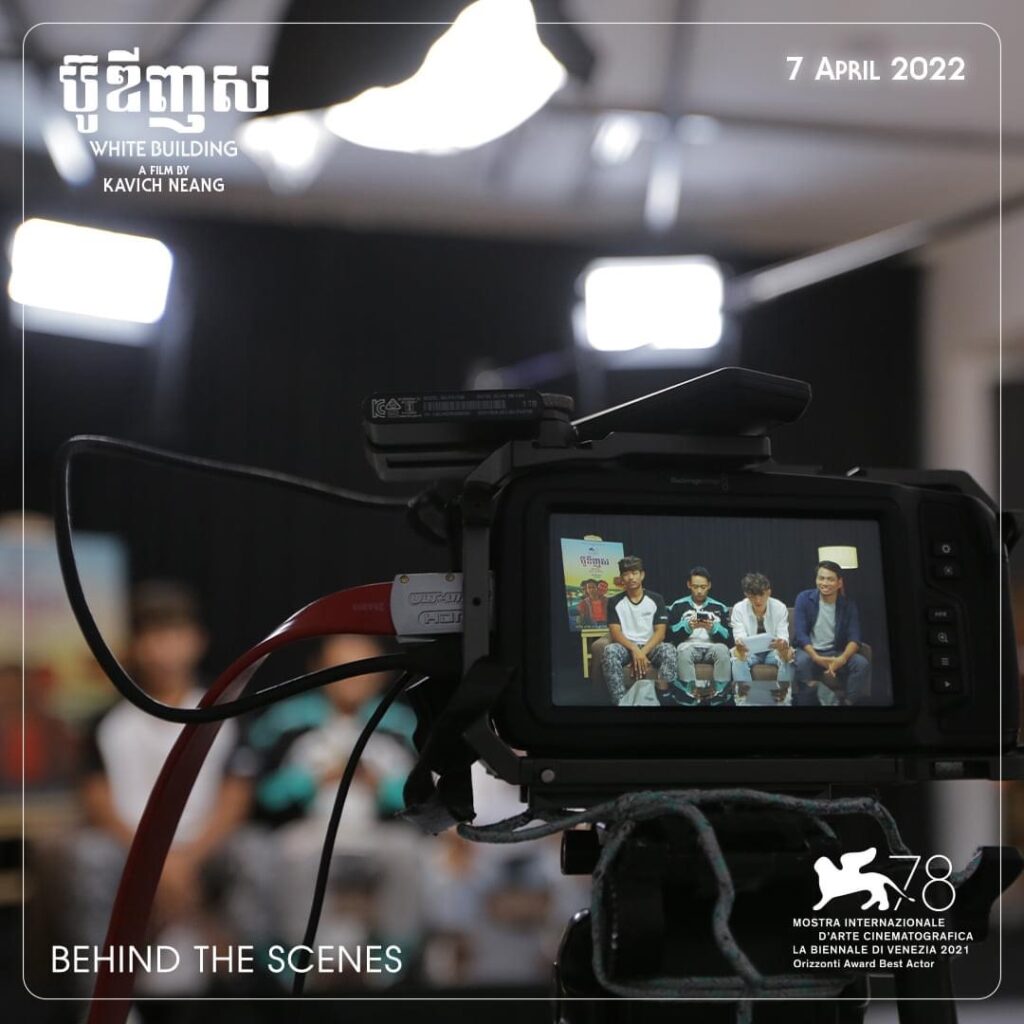Through 10 years of hard work, Neang Kavich has portrayed the unspoken story of everyday life through his art and has found his place as a filmmaker.

Kavich has directed more than 10 films, and has recently risen in fame for his direction of his latest film White Building. The film premiered at the 78th Venice Film Festival and won ORIZZONTI PRIZE FOR BEST ACTOR, spotlighting new talent and is currently screening in many cinemas in Cambodia.
For Kavich, it all started in secondary school, when he and some friends attended a traditional dance class with the classical music master, Eang Sithoul in the White Building, the subject of his latest film and his childhood home.
He attended the classes until he graduated from high school. As a traditional dancer, Kavich had the chance to perform on the international stage many times and started to learn more about the outside world. His experiences led him to realise that, while he enjoyed his work, he did not want to work as a dancer for the rest of his life.

In 2007 he got a chance to do an internship with Cambodia Living Art, where he worked in a studio recording and videographing Khmer artists for 1 year. That was the opportunity which made him realise that he wanted to be a filmmaker. After his experience at Cambodia Living Arts, in 2010 he began to learn the basics of film with Devy Chou, the founder of Anti-Archive.
After six months with Chou, he was introduced to Rithy Panh, the well known Cambodian documentary filmmaker, and attended a documentary filmmaking workshop for two and half years. During that time, he also made his first two documentary films, A SCALE BOY and WHERE I GO.
Kavich described his inspiration in filmmaking as “the freedom of expression through his work.” It allows him to express his opinions and emotions when society often provides limited opportunities to do so. Family and tradition can restrict expression. Sometimes our parents ask us this or that when we do something that is different from them, and pass judgement that we do is wrong.

The man behind the big screen believes that film is magical. They are often interpreted differently and have different meanings and messages depending on who is watching them. Different audiences have different thoughts and understandings.
“I mean, the film itself gives more meaning than I intend. That’s why I compare film to magic. It is more than we want. ”
Despite financial challenges and the difficulty in producing films, Kavich has a strong passion for creating his art. He believes it allows the audience to reflect on the reality of life and connect to the story in a way that helps them better understand who they are and the realities of society.
Speaking on Khmer culture, Kavich says he does not consciously incorporate it into his films. “I would say I neither want to or do not want to express about culture when I am making a film. I already talk about culture because my work is about society and culture links to society.”

Making films is not only one day or a month. It takes time and requires lots of research. “The greatest message that I have learned through a decade of experience working in the film industry is patience and consistency,” said Kavich.
A filmmaker has to be persistent because it is easy to fail and the process is difficult. Writing. Videography. Editing. There are many steps and details. In the end as a filmmaker, you must be patient and consistent. Even though you fail, you need to stand up again.
Looking ahead to the future, Kavich strongly believes that the film industry in Cambodia will continue to grow and receive more recognition from local and international audiences.
He recognises that artists are playing an important role in promoting positive outcomes in society and that they cannot do this without the participation and support from the people. Society must have an open-mind and understand the importance of the role of art. And it is an artist’s role to help shine a light on this.



